Tom Metcalfe
Wed, September 27, 2023
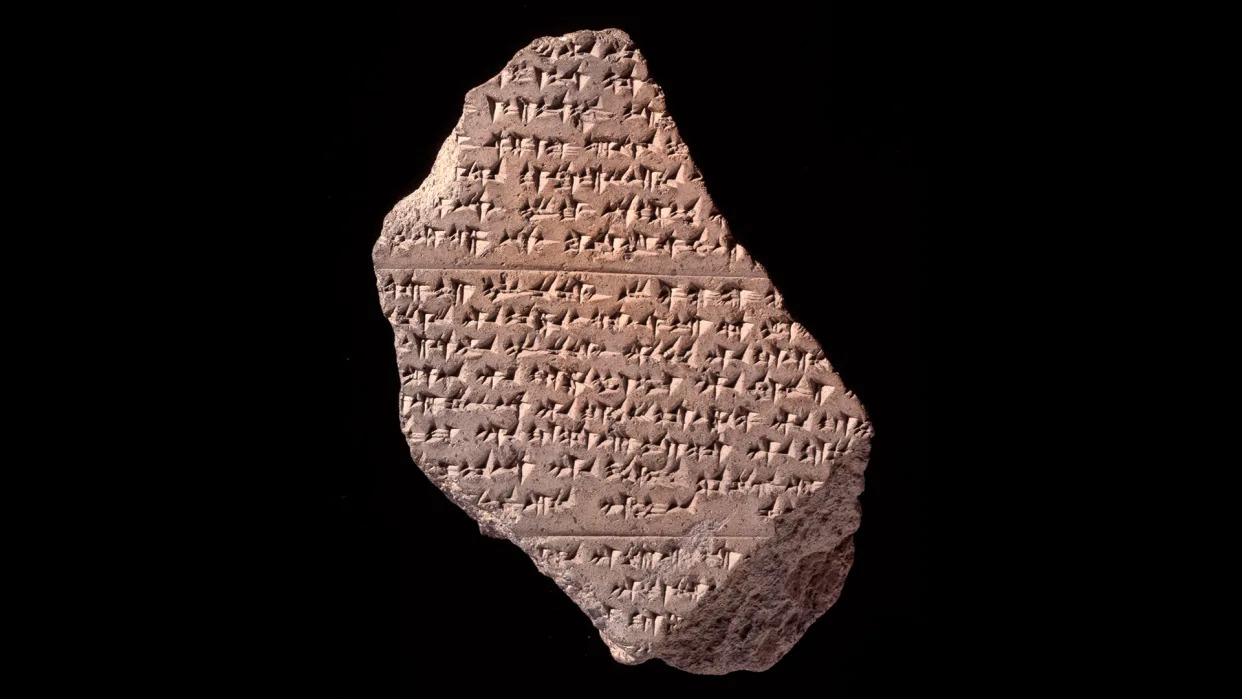
Words from a "lost" language spoken more than 3,000 years ago have been discovered on an ancient clay tablet unearthed in Turkey.
Archaeologists discovered the tablet earlier this year during excavations at Boğazköy-Hattuşa in north-central Turkey, the site of Hattusha, the Hittite capital from about 1600 B.C. until about 1200 B.C. and now a UNESCO World Heritage site.
Annual expeditions to the site led by Andreas Schachner, an archaeologist at the German Archaeological Institute, have unearthed thousands of clay tablets written in cuneiform — perhaps the most ancient written script, created by the Sumerians in Mesopotamia more than 5,000 years ago.
The tablets are "mainly found in clusters connected to half a dozen buildings," sometimes described as archives or libraries, Schachner told Live Science. "But we find text all over the [site] that are moved around by erosion."
Most of the tablets unearthed at Boğazköy-Hattuşa are written in the language of the Hittites, but a few include words from other languages — apparently because the Hittites were interested in foreign religious rituals.
Related: What's the world's oldest civilization?
The words in the previously unknown language appear to be from such a ritual, which was recorded on a single clay tablet along with writing in Hittite explaining what it was.
"The introduction is in Hittite," Schachner said in an email. "It is clear that it is a ritual text."
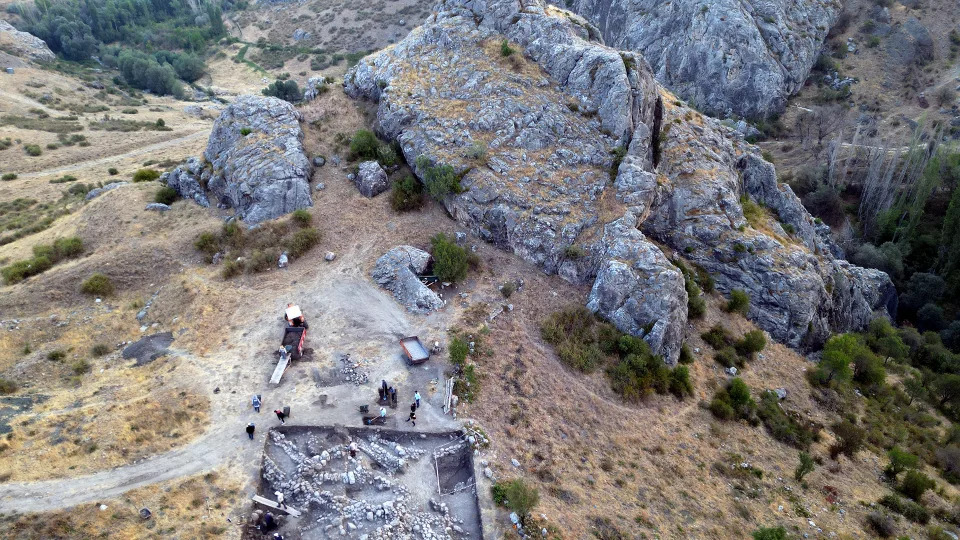
Lost language
The clay tablet was one of several sent to Germany to be analyzed, where it was studied by Daniel Schwemer, a professor and chair of Ancient Near Eastern Studies at the University of Würzburg. From the Hittite introduction, he identified it as the language of Kalašma, a region on the north-western edge of the Hittite heartland near the modern Turkish city of Bolu.
The scholars don't know what it says yet, and they're not releasing any photographs of the tablet until it has been fully studied.
But they've determined that it belongs to the Anatolian group of the Indo-European family of languages, which the Hittite language also belonged to; other ancient languages in the region, including Akkadian, Hebrew and Aramaic, belong to the Semitic family of languages.
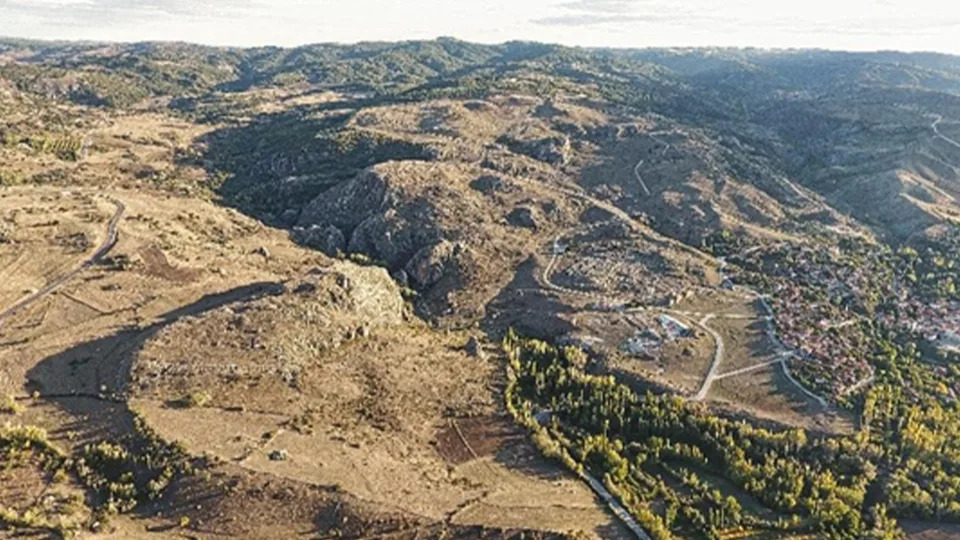
Schwemer said in a statement that "the Hittites were uniquely interested in recording rituals in foreign languages." Extracts of rituals in other foreign languages have also been found in the tablets from Boğazköy-Hattuşa, including in the Indo-European languages Luwian and Palaic and a non-Indo-European language known as Hattic.
Such ritual texts were written by Hittite scribes and reflected various Anatolian, Syrian and Mesopotamian traditions and linguistic milieus.
"The rituals provide valuable glimpses into the little-known linguistic landscapes of Late Bronze Age Anatolia, where not just Hittite was spoken," Schwemer said.
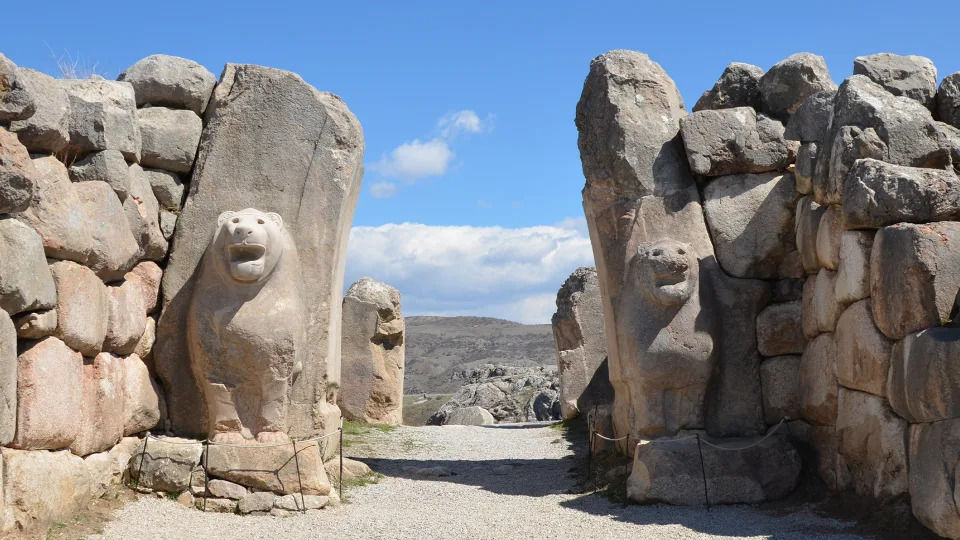
For centuries, the Hittites, who ruled over most of Anatolia (modern-day Turkey) and Syria, were among the most powerful empires in the ancient world. In 1274 B.C., the Hittites fought the Battle of Kadesh against the Egyptians for control of Canaan — what's now southern Syria, Lebanon and Israel.
The battle may be the earliest military action ever recorded. It seems to have been a defeat for the Hittites; although they kept control of the city of Kadesh, the Egyptians kept control of Canaan.
RELATED STORIES
—Is Latin a dead language?
—Cryptic lost Canaanite language decoded on 'Rosetta Stone'-like tablets
—Ancient 'unknown' script finally deciphered 70 years after first being discovered
Hattusha became the Hittite capital in about 1600 B.C.; and more than 100 years of archaeological excavations at the site have revealed a vast ancient city there.
But it was abandoned in about 1200 B.C. during the cataclysmic "Late Bronze Age collapse" that suddenly ended or damaged many ancient states in the eastern Mediterranean; the collapse has been ascribed to invasions by migrants called the "Sea Peoples", sudden climate changes, and disruptive new technologies like iron — but historians and archaeologists debate the causes.
Schachner said it wasn't possible to foresee if any other writings in the "lost" language would be found, or if extracts from still other ancient languages would be found in the tablets from Boğazköy-Hattuşa.
Kerry Breen
Wed, September 27, 2023
A new language has been discovered in a UNESCO World Heritage Site being excavated in northern Turkey, according to a news release from the University of Würzburg.
The area being excavated is Boğazköy-Hattusha, the former capital of the Hittite Empire. The Hittites are one of the world's oldest known civilizations, with the world's oldest known Indo-European language, and excavations at that site have been ongoing for more than 100 years, the university said. The excavations are directed by the German Archaeological Institute. Previously, archaeologists at the site have found "almost 30,000 clay tablets with cuneiform writing," according to the university's news release.
The tablets have helped researchers understand the civilization's history, society, economy, religious traditions and more, but this year's excavations at the site "yielded a surprise," the university said: Within a "cultic ritual text," written in Hititte, there is a "recitation in a hitherto unknown language."
"The Hittites were uniquely interested in recording rituals in foreign languages," said Daniel Schwemer, chair of Ancient Near Eastern Studies at the university, in the release. This means that the find isn't entirely unexpected. It appears to refer to a language from an area once called Kalašma, on the northwestern edge of the Hittite civilization, where the Turkish towns of Bolu and Gerede currently exist.
The language is "as yet largely incomprehensible," the news release said, and is being studied for more understanding.
This is the fourth such language found among the tablets: Previous researchers have found cuneiform texts with passages in Luwian, Palaic and Hattic languages. The first two languages are closely related to Hittite, the university said, while the third language differs. The new language was found where the Palaic language was spoken, but researchers believe it shares "more features" with Luwian. The connection between the languages will be studied by researchers.
The university said that these ritual texts were usually written by the scribes of Hittite rulers and reflect various Bronze Age traditions and languages. According to the University of Chicago's Institute for the Study of Ancient Cultures, which keeps the Chicago Hittite Dictionary, a "comprehensive, bilingual Hittite-English dictionary," studying Hittite languages can help illuminate how Western civilization began.
"Despite what is often thought, modern Western civilization did not start with the Greeks," the institute said on its website. "The real cradle of our civilization stood in what is now the Middle East. Many literary and artistic themes and motifs can be traced back directly to that world. The Bible was embedded in ancient Near Eastern society, and the earliest forms of what we call modern science are found in Babylon. Anatolia is the natural bridge between those Eastern worlds and Graeco-Roman civilization and the Hittites and their later descendants in the same area served as intermediaries, handing down ancient Near Eastern culture to the West."
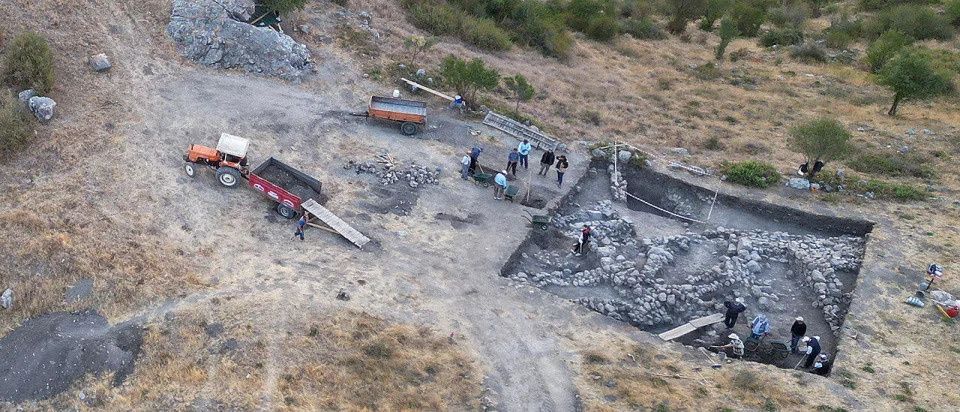
No comments:
Post a Comment